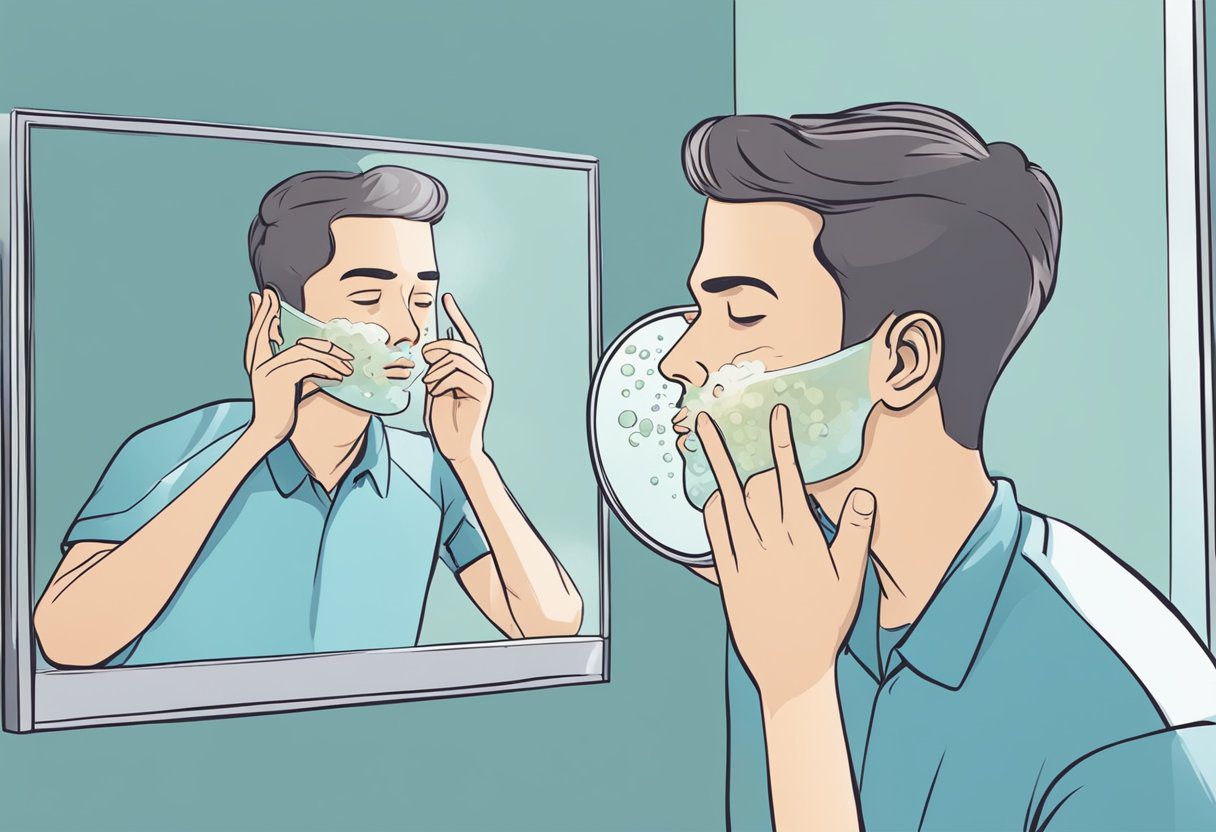Does Vaping Cause Acne? What You Need to Know
Vaping has become increasingly popular in recent years, with many people turning to e-cigarettes as an alternative to traditional smoking. However, concerns have been raised about the impact of vaping on skin health, particularly with regards to acne. In this article, we will explore the relationship between vaping and acne, and provide insights into the effects of vaping on skin health.
Acne is a common skin condition that affects many people, particularly teenagers and young adults. It is caused by a combination of factors, including excess oil production, clogged pores, and inflammation. While there are many different factors that can contribute to acne, some people have suggested that vaping may be one of them. This is because vaping involves inhaling chemicals and other substances that can have an impact on the body, including the skin.
So, does vaping give you acne? While the evidence is not yet conclusive, there are some indications that vaping may indeed contribute to acne breakouts. Some studies have suggested that the chemicals found in e-cigarettes, including nicotine and propylene glycol, can increase oil production in the skin, leading to clogged pores and acne. Additionally, vaping can also cause inflammation in the body, which can exacerbate existing acne or make it more difficult to clear up.
Contents
- 1 Understanding Acne and Skin Health
- 2 The Impact of Vaping on Skin
- 3 Specific Effects of Vaping Related to Acne
- 4 Quitting Vaping and Skin Recovery
- 5 Frequently Asked Questions
- 5.1 Can vaping lead to skin puffiness?
- 5.2 Is there a link between vaping and the development of cystic acne?
- 5.3 Are there any skin improvements reported after ceasing vaping?
- 5.4 Could nicotine intake from vaping contribute to acne?
- 5.5 How does vaping compare to smoking in terms of skin health?
- 5.6 Does cessation of vaping result in weight changes that could affect acne?
Understanding Acne and Skin Health
Role of Skin in Overall Health
The skin is the largest organ in the body and plays a significant role in overall health. It acts as a barrier to protect the body from harmful external factors such as bacteria, viruses, and pollutants. The skin also helps regulate body temperature and plays a vital role in the immune system.
Common Factors Contributing to Acne
Acne is a common skin condition that affects millions of people worldwide. Acne occurs when hair follicles become clogged with oil and dead skin cells. This can lead to the growth of bacteria, inflammation, and the formation of pimples, blackheads, and whiteheads.
Several factors can contribute to the development of acne. One of the primary factors is the overproduction of sebum, an oily substance produced by the skin’s sebaceous glands. When too much sebum is produced, it can clog pores and lead to the growth of bacteria.
Other factors that can contribute to acne include hormonal changes, stress, and diet. Hormonal changes can cause an increase in oil production, leading to the development of acne. Stress can also contribute to acne by increasing inflammation in the body. Finally, a diet high in processed foods and sugar can lead to the development of acne by increasing inflammation and oil production in the skin.
While some people may believe that vaping can cause acne, there is no clear evidence to support this claim. However, vaping can lead to dehydration, which can dry out the skin and potentially contribute to the development of acne. Additionally, some chemicals found in e-cigarettes can slow down the body’s natural healing and repair processes, which can make it more difficult for the skin to heal from acne breakouts.
Overall, maintaining good skin health is essential for preventing the development of acne. This includes maintaining a healthy diet, managing stress levels, and properly caring for the skin by keeping it clean and moisturised.
The Impact of Vaping on Skin
Vaping has become a popular alternative to traditional smoking, but it is not without its potential downsides. While there is no direct link between vaping and acne, there are concerns that vaping can cause skin problems. In this section, we will explore the impact of vaping on skin and the potential risks associated with vaping.
Chemicals in Vape Products and Skin Damage
One of the main concerns about vaping is the chemicals found in e-cigarettes and their potential impact on skin health. Many e-cigarettes contain propylene glycol, which can cause dry skin and lead to breakouts. In addition, the harmful chemicals found in e-cigarettes, such as formaldehyde and nicotine, can deposit in the skin and cause oxidative stress, leading to premature aging and wrinkles.
Comparison of Vaping and Traditional Smoking on Skin
While vaping is often touted as a safer alternative to traditional smoking, it is important to note that both can have negative effects on skin health. Cigarette smoke contains harmful chemicals that can cause collagen breakdown, leading to premature aging and wrinkles. In addition, smoking can cause dehydration, which can lead to dry skin and breakouts.
Overall, while there is no direct link between vaping and acne, there are concerns about the impact of vaping on skin health. It is important to be aware of the potential risks associated with vaping and to take steps to protect your skin. This can include using a moisturiser to combat dryness, avoiding e-cigarettes that contain harmful chemicals, and staying hydrated to maintain healthy skin.
Vaping has been linked to several skin problems, including acne. While the exact relationship between vaping and acne is not yet fully understood, there are several ways in which vaping may contribute to the development of acne.
Vaping’s Influence on Oil and Sebum Production
One possible explanation for acne among people who vape is that vaping can influence oil and sebum production in the skin. Sebum is an oily, waxy substance that can clog pores and hold dirt and dead skin, which can lead to acne. According to this study, vaping can cause dehydration, which can lead to overproduction of sebum, or natural oils, which can clog pores and lead to acne.
Potential for Acne Breakouts from Vaping
Another possible explanation for acne among people who vape is that e-cigarettes may contain chemicals that can contribute to the development of acne breakouts. Exposure to chemicals in e-cigarettes, such as propylene glycol and other chemicals, may contribute to the development of acne breakouts. Vape pens, which come in various brands and types, may have different effects on the skin.
Inflammation is also a factor in the development of acne. According to this toxicology study, vaping can cause inflammation in the skin, which can lead to clogged pores and pimples. Inflammation can also exacerbate existing skin conditions, such as rosacea and eczema.
Overall, while more research is needed to fully understand the relationship between vaping and acne, it is clear that vaping can contribute to the development of acne breakouts. It is important to take steps to prevent acne breakouts, such as keeping the skin clean and hydrated, and avoiding exposure to chemicals that can contribute to the development of acne.
Quitting Vaping and Skin Recovery
Vaping has become a popular habit among smokers who want to quit smoking. While it is considered safer than smoking, vaping is not without its negative health impacts. One of the potential side effects of vaping is skin issues, including acne. However, quitting vaping can lead to skin recovery and improvement in skin health.
Benefits of Quitting Vaping for Skin Health
Nicotine, the addictive substance in vape pens, narrows blood vessels, reducing blood flow to the skin and potentially causing skin damage. Quitting vaping can improve skin health by increasing blood flow to the skin and improving skin hydration. According to a study, quitting smoking can lead to a significant reduction in skin wrinkles and improvement in skin tone and texture.
Strategies to Improve Skin After Vaping
Quitting vaping is the first step towards skin recovery. However, it may take some time for the skin to recover fully. Here are some strategies to improve skin health after quitting vaping:
- Stay hydrated: Drinking plenty of water can improve skin hydration and help flush out toxins from the body.
- Follow a healthy diet: A diet rich in fruits, vegetables, and whole grains can provide essential nutrients for skin health.
- Use skincare products: Skincare products containing ingredients like retinoids, vitamin C, and hyaluronic acid can help improve skin texture and tone.
- Exercise regularly: Regular exercise can improve blood flow to the skin and promote skin health.
In conclusion, quitting vaping can lead to skin recovery and improvement in skin health. By following healthy habits and using skincare products, former vapers can improve their skin health and regain their youthful appearance.







Leave a Reply